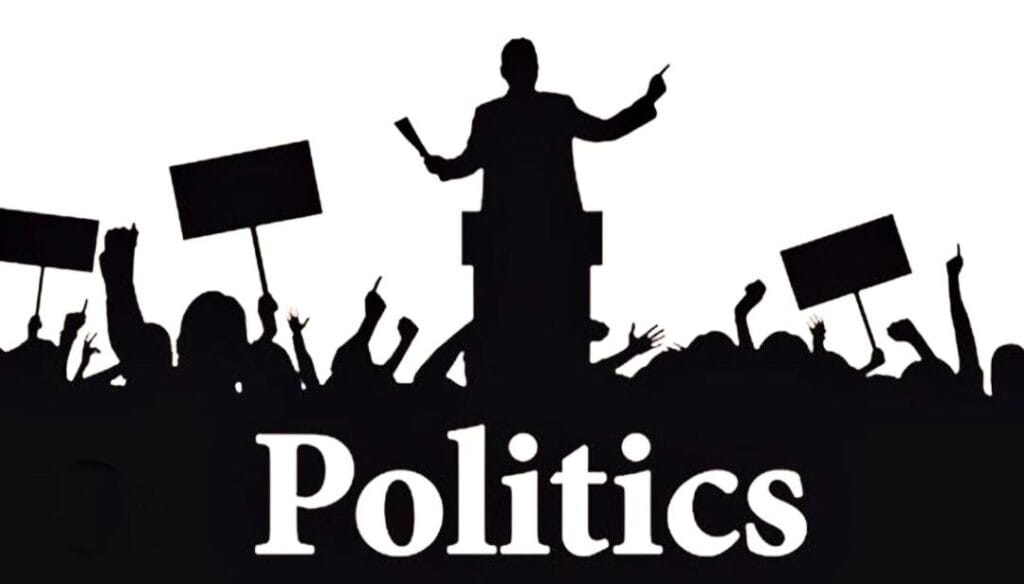
“Politics: Theorizing the ‘Political'” is a concept explored primarily in political theory and philosophy, and it delves into the broader, more abstract ideas about what constitutes “the political” rather than just politics as a process or set of institutions. The distinction between politics and the political is central to understanding this line of thought.
1. Politics:
This typically refers to the activities, institutions, or processes related to governing and decision-making within a specific community, state, or organization. It involves:
- Political parties, elections, policy-making.
- Power relations within government structures.
- Public administration and law-making.
Politics refers to the activities, processes, and structures involved in the organization, governance, and decision-making within a society or group. It encompasses the ways in which power is distributed, negotiated, and exercised among individuals, groups, or institutions. At its core, politics is concerned with the management of collective life, the establishment of rules and laws, and the balancing of competing interests.
Key Aspects of Politics:
- Power and Authority:
- Politics revolves around the use and distribution of power, which is the ability to influence or control the behavior of others.
- Authority refers to the legitimate use of power, where people or institutions have the right to make decisions and enforce laws.
- Governance:
- Politics involves the creation and maintenance of governing institutions (e.g., governments, parliaments, and courts) that establish laws and policies to manage public affairs.
- It includes different forms of government (e.g., democracy, authoritarianism, monarchy) that determine how power is organized.
- Decision-Making:
- Political processes involve making collective decisions that affect the whole society or group. This includes policies on economics, healthcare, education, foreign relations, and more.
- Decision-making in politics often requires negotiation, compromise, and debate among various stakeholders.
- Conflict and Cooperation:
- Politics often involves both conflict (disputes over power, resources, values, or interests) and cooperation (working together to solve common problems).
- Conflict in politics can lead to debates, elections, protests, and even wars, while cooperation can result in alliances, treaties, and policy agreements.
- Public Policies:
- The outcome of political activity often results in the creation of public policies—rules, regulations, or laws designed to achieve particular goals within a society, such as improving education, reducing poverty, or ensuring national security.
- Political Systems and Ideologies:
- Political systems refer to the way societies organize governance, including democracy, authoritarianism, socialism, communism, and others.
- Political ideologies like liberalism, conservatism, socialism, and nationalism provide different views on how society should be organized and governed.
- Participation and Representation:
- In democratic systems, politics involves active participation from citizens, including voting in elections, running for office, or engaging in political activism.
- Representation refers to the process by which elected officials act on behalf of their constituents or the public.
Importance of Politics:
Politics is essential because it shapes the rules and frameworks by which societies function. It affects every aspect of life, including economic policies, social justice, international relations, and the protection of rights and freedoms. Through political processes, societies make decisions about what is just, fair, and beneficial for their people.
In short, politics is the art and practice of making decisions that affect the collective life of people, involving both conflict and cooperation over power, resources, and governance.
2. The Political:
“The political” refers to the foundational and existential conditions that make politics possible. This concept is more philosophical, dealing with:
- The nature of power and conflict in society.
- The ways in which communities define themselves.
- How societal order, justice, and authority are established.
Thinkers like Carl Schmitt, Hannah Arendt, and Chantal Mouffe have contributed to understanding the political:
- Carl Schmitt: Schmitt’s work emphasizes that politics is based on the distinction between friends and enemies, with the political being a site of fundamental conflict and antagonism.
- Hannah Arendt: She focused on human action, public space, and the collective nature of the political, where citizens engage in a shared process of determining their fate.
- Chantal Mouffe: She theorizes the political in terms of agonism (conflictual consensus), where political engagement is seen as an ongoing struggle between different groups rather than a resolution of all conflict.
Key Themes in Theorizing the ‘Political’ :
- Conflict and Antagonism: Many theorists of “the political” argue that politics is not just about consensus and order but also about ongoing conflict. The political arises where there is disagreement over fundamental issues.
- Power Relations: The political deals with how power is distributed, contested, and institutionalized in society.
- Identity and Exclusion: The political involves processes of inclusion and exclusion — who belongs to the community, who is left out, and how collective identities are formed.
- Legitimacy and Authority: The political explores the foundations of authority — why people obey laws and institutions, and how those institutions gain legitimacy.
The distinction is important in contemporary debates about democracy, social movements, and governance, as it helps unpack deeper ideological and societal structures beneath the surface of everyday politics.

